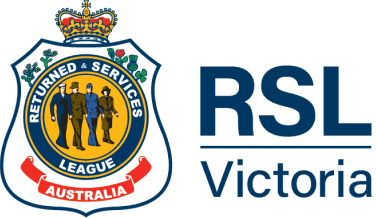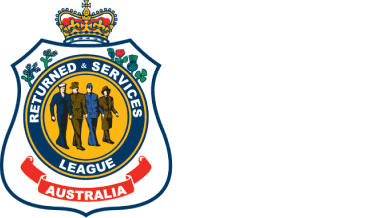Photography: Wild Hardt photography
**WARNING: CONTAINS DISTRESSING/TRIGGERING CONTENT**
As Stuart Chandler waited to board a helicopter joy flight at Moorabbin Airport courtesy of RSL Active, it’s clear he has a new lease on life.
RSL Active is known for many things – a way to connect with other veterans, develop social networks, tell stories, enhance support circles and improve physical and mental health. Some, like Stuart and his family, even call it life-changing.
It is because of this that Stuart and his wife Jenean are such advocates of the program. “When I was struggling, honestly, what RSL Active did was keep the household together.”
“Obviously, I was going through a lot and my wife was trying to deal with it and my kids were dealing with it and RSL Active allowed not just me, but everyone could drop their guard and relax. And if something was going to happen, they knew there were other veterans and RSL Active to help deal with it.”
His wife of 26 years, Jenean, agrees. “It’s an outing where it takes pressure off you, off worrying about what they’re going to do. He’s a lot better.”
Stuart immigrated to Australia with his family when he was a toddler, but it was a defining moment in his life. “When I grew up, I decided I wanted to give back to the country that accepted me…to say thank you to the country that gave me basically a new start.”
In 1982, when he was half way through year 11, Stuart enlisted with the Royal Australian Navy, aged 17. “When I got there and started the training it was scary to be honest because what they do is, they break you so they can remould you.”
Part of his training took place at HMAS Albatross, where Stuart mastered the art of packing life jackets, parachutes, life rafts and various safety equipment for aircraft. “One day, we had an officer walk in…he goes ‘do you reckon you packed those good enough for your own life?’ We just laughed and he said ‘come with me’. So, we went up in a Caribou, jumped out at 3000 feet with our chutes on to make sure they worked.”
It sure was a lesson in putting your heart and soul into packing every parachute correctly.
With his rigorous training complete, Stuart was given the opportunity to go to sea and was posted to HMAS Torrens, where shift work was the norm and living conditions a squeeze. “You’re literally living, breathing, showering, working together…so you get really close.”
And so began Stuart’s journey of camaraderie. “The mateship was not just at sea but when we had weekend leave, say in Singapore, we’d go to the pub together and have a few beers, do stuff as a group. So even when we got the opportunity to be apart, we were never.”
Stuart was qualified to work in vertical transport. “I used to work a lot under helicopters, as in, they were flying at say 8 feet above me and I would be under them, manoeuvring helicopters into position, picking up luggage and picking up people.”
He enjoyed the pace, the adrenalin, and the unusual opportunities. “I used to get a lot of joy flights in the helicopters and because we had the Sky Hawk aircraft, I got rides in the dual seat jet and that was magnificent because we were doing three or four G’s. The speed was unreal.”
Some of Stuart’s more challenging moments included some of his deployments, like to Papua New Guinea. “For the first 24-48 hours we got there and we were the ones that had to walk around the streets with rifles at night until the Army got in and we got back on our ship.”
“We don’t know what’s around every corner, so your first reaction would be to pull the trigger and ask questions later, but clearly at the back on your mind you don’t want to do that. So, it’s a big mess confusion wise.”
Stuart knows it wreaked havoc with his mental health, but at the time, it was common to sit down, have a beer with your service mates and laugh it off.
It was also during his time on Torrens, Stuart suffered an injury to his wrist. But with short term, quick fixes to get him back on the job, the injury continued to plague him.
During his service, he transferred from HMAS Torrens to HMAS Jervis Bay, and spent four years at sea.
Unfortunately, Stuart reinjured his wrist, which ultimately led to him being medically discharged in 1988, with the rank of Able Seaman.
Life after service saw Stuart move from job to job, which included driving a truck – a job that helped him recover from his alcohol addiction. But after multiple operations on his arm, doctors advised he could no longer work.
Stuart spiralled and his mental health struggled. In his words, he hit rock bottom. He attempted suicide multiple times and spent months in a psychiatric ward.
Jenean says life with Stuart was really hard at times. “It was like living with the Incredible Hulk. He’d be alright and then all of a sudden he would explode.”
She remembers Stuart being so conditioned from his service that beds were constantly remade at home and towels had to be rolled.
Just two years ago, Stuart attended his first RSL Active event. “Because I suffer from severe anxiety, I don’t go out a lot but RSL Active makes it enjoyable because being all ex-service people, we all understand where each other are coming from.”
Even when Stuart can’t participate in certain activities, he says he attends to be sociable – something that wouldn’t have ever crossed his mind before. Jenean says he’s a changed man. “I think the first two or three times he just didn’t speak to anybody but now, it’s a lot better, he goes off and talks to the other guys.”
During Victoria’s extended COVID lockdowns last year, RSL Active embraced technology and ran as many activities online as possible. Stuart’s daughters participated in online yoga, even if they didn’t take it too seriously. “They sat their laughing their heads off, but even that was helpful!”
Stuart, Jenean and their three children are a team to be reckoned with, being by each other’s side each step of the way - when times were incredibly tough and through the ongoing journey of healing and recovery.
The family are eternally grateful to the RSL for its support along the way.

